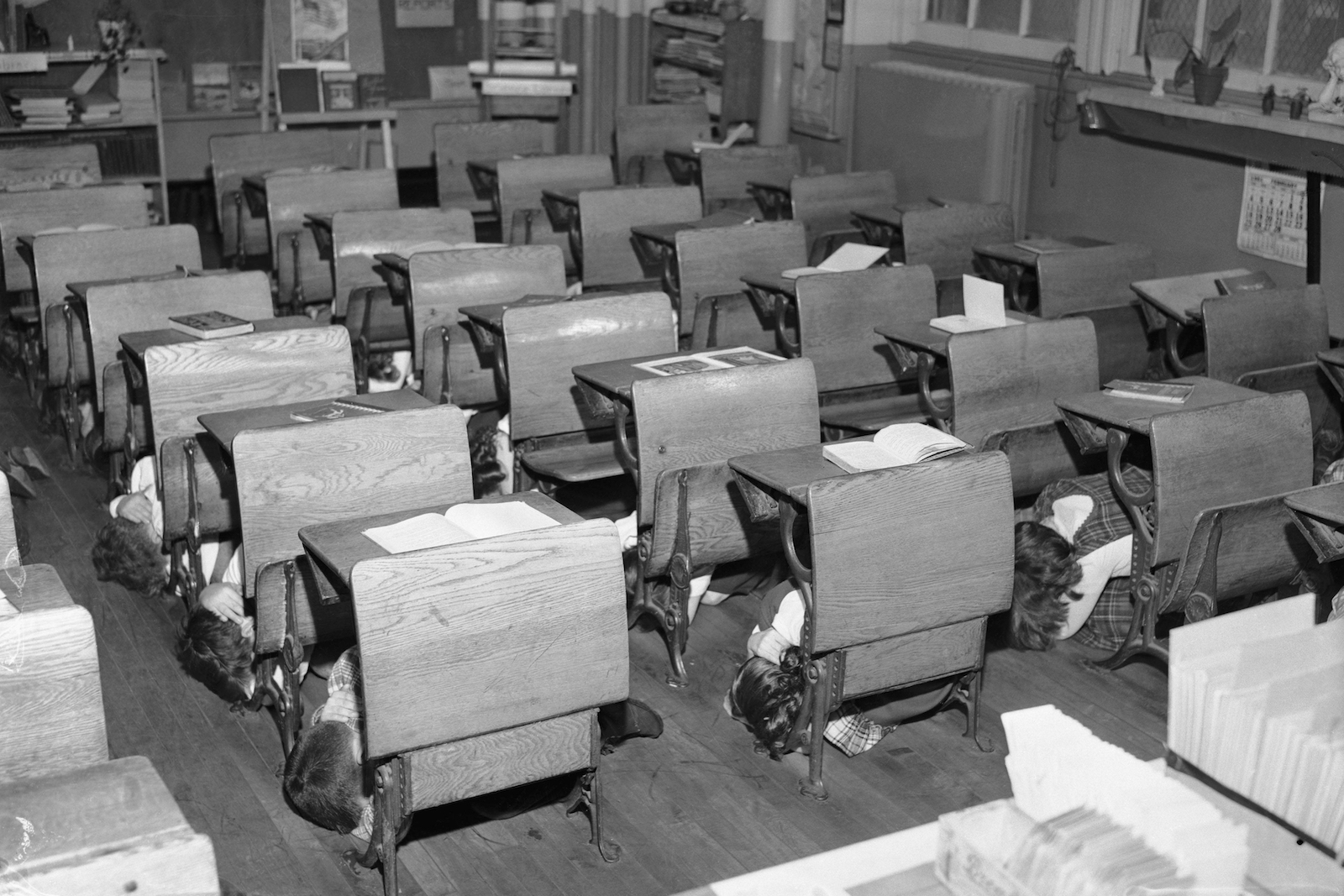
Health
As Fears of Nuclear Fallout Mount, Medical Countermeasures Should Take Priority
Russia’s invasion of Ukraine has plunged Europe into its biggest war since 1945 and resurrected the morbid spectre of nuclear annihilation. Across the continent, Europeans are rushing to buy potassium iodide tablets, often depleting pharmacy stocks—despite the fact that potassium iodide pills do not treat the type of acute radiation sickness which would result from a nuclear detonation.
With the Ukraine crisis raising the risk of a nuclear attack or accident, governments and health authorities everywhere need to reassure their citizens by undertaking a more organised drive on what to do in response to an incident. What’s more, it will also be critical to purchase and stockpile approved medical countermeasures, including repurposed drugs like the cancer treatment Leukine, which has been FDA-approved to treat people exposed to higher doses of radiation associated with a detonation or plant explosion. While world leaders should do everything in their power to avoid nuclear catastrophe, they would be remiss not to prepare for the possibility and to educate citizens about a response.
Blast from the past
The fall of the Soviet Union and the so-called “end of history” in the early 1990s sparked hopes that the post-WWII era of nuclear tensions might be coming to a close. Even with the addition of countries like India, Pakistan, and Israel to the nuclear pantheon during the ‘70s and ‘80s, the threat of nuclear annihilation seemed increasingly a thing of the past. Rogue nuclear programs by the likes of Iran and North Korea were met with staunch international opposition and made little headway. For a while it seemed that the world’s nuclear arsenal was for the most part in calm, capable hands.
The past few weeks have called that assumption into question, as Russian tanks have rolled into Ukraine. Russian troops invading from Belarus attacked the defunct Chernobyl power plant, capturing its staff and trapping them inside the facility. Even more concerningly, a massive battle took place a few days later over Zaporizhzhia, Ukraine’s largest nuclear plant, with dangerous fires breaking out near the reactors. Meanwhile, Vladimir Putin placed his country’s considerable nuclear forces on high alert, marking a shocking escalation of nuclear tensions to a level not yet seen this century.
While the current tensions haven’t quite reached the “duck and cover” days of the 1950s, a large portion of the planet’s population is worried about the potential of nuclear fallout and radiation sickness caused either by malice or by accident. Anti-radiation medicine has suddenly become a priority for countless people.
Pill panic-buying spreads
In several European countries, these concerns have translated into a run on pharmacies, with people eager to get their hands on potassium iodide pills, which provide some protection to the thyroid gland from certain types of radiation and can reduce the risk of thyroid cancer. More than 30,000 doses were distributed in Belgium on a single day, while in Bulgaria, pharmacies sold in just six days as many iodide pills as they usually do in a year.
Unfortunately, the pills sold over the counter have a very low concentration of potassium iodide and only protect the thyroid against very low levels of exposure to radioactive iodine, meaning that they are unlikely to provide significant protection against a nuclear detonation. This only highlights the fact that, rather than rely on individuals to take preventative measures, governments should greatly increase their efforts to acquire and stockpile medicines that would save lives in a worst-case nuclear scenario.
Old drugs, new uses
While potassium iodide pills can alleviate less-serious cases of radiation poisoning, health authorities should in parallel explore more sophisticated medicines. As CNN recently reported, Leukine, an injection manufactured by Massachusetts-based firm Partner Therapeutics, is one leading candidate.
Leukine has been approved for use in the U.S. since 1991 for certain cancer patients and has been used by more than half a million patients since then. Its use has since expanded greatly and in 2018 it received its sixth FDA approval, this time for the treatment of acute radiation syndrome. It works by accelerating the recovery of white and red blood cells and platelets that are crucial elements of the body’s immune system.
The drug was used to treat victims of the Chernobyl and Tokaimura nuclear accidents, and the U.S. has long recognised Leukine’s potential as a nuclear attack countermeasure, establishing a stockpile of the drug in 2013 which it added to in 2016 and 2019. As risks have risen following the invasion of Ukraine, Partner Therapeutics’ distribution partner, Tanner Pharma, announced this month that it will expand its inventory of the drug in Europe.
Leukine possesses certain advantages that make it appealing for health authorities across the world. Firstly, its status as an established drug already in use for more than 30 years does away with many of the uncertainties that come with new and untested medication. Secondly, the manner in which the drug is administered could prove crucially important. There are other treatments for radiation poisoning, such as Amgen’s Neulasta, but require treatment to start within 24 hours of the radiation exposure. Leukine comes in the form of a simple subcutaneous shot, which can be administered up to four days later. In a major emergency such as a nuclear attack or reactor meltdown, that difference in treatment window could save countless lives.
Continental plans
Defying perennial critiques of its bureaucracy, the European Union seems to want to move quickly on the issue of preparing for such an emergency. Earlier this month, Brussels announced plans to improve the bloc’s medical readiness for a nuclear disaster and encouraged national governments to stockpile protective equipment and medication that fights off radiation poisoning.
Some authorities still regard the matter as too morbid or the scenario of a nuclear disaster too unlikely to fathom. They must put aside such considerations and take the necessary precautions. Reaching a point where there is an actual need for such stockpiles is catastrophic—but not having the right medicines on hand is far worse.

